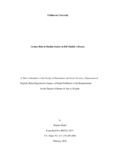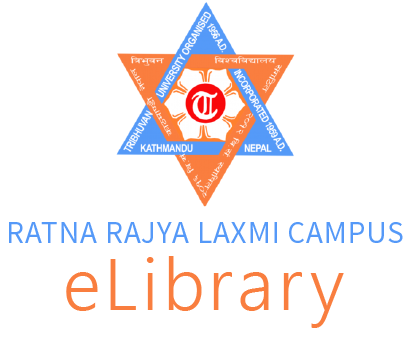Please use this identifier to cite or link to this item:
http://eibrary.ratnarajyalaxmicampus.edu.np:8080/handle/123456789/113Full metadata record
| DC Field | Value | Language |
|---|---|---|
| dc.contributor.advisor | Adhikari, Hari | |
| dc.contributor.author | Badal, Sitaram | |
| dc.date.accessioned | 2021-01-17T07:19:13Z | - |
| dc.date.available | 2021-01-17T07:19:13Z | - |
| dc.date.submitted | 2018 | |
| dc.identifier.uri | http://202.45.147.228:8080/handle/123456789/113 | - |
| dc.description.abstract | one belongs to. Due to the discrimination, not only the roles are defined but also the bearing of children is taken into consideration especially in Muslim culture. Although the world is moving towards the post-modernism, many Muslim women have to confine themselves only serving their male members and bearing children. They are not allowed to expose outside world. The story revolves around the protagonist of the novel Naze who cannot give birth to a son though she bears eight children. Consequently, she tortured much from the family members. Naze dies untimely in the expectation of bearing a son. Her twin daughters Pembe and Jamila also suffer from many aspects. Even after giving birth to a son named Iskender, Pembe does not feel happy because he is too proud of himself simply being a male. Esma, Pembe’s daughter, is conscious that women are dominated in a brutal manner. Her brother goes to a jail for killing his own mother Pembe. Esma thinks of killing him as revenge but cannot because she is a woman, she has love somewhere in a corner of the heart. While comparing men and women, role of women seems stronger than men though apparently men are focused. | |
| dc.format.extent | 22 | |
| dc.subject | M.A. English | |
| dc.title | Gender Role in Muslim Society in Elif Shafak’s Honour | |
| dc.type | Thesis | |
| Appears in Collections: | English | |
Files in This Item:
| File | Description | Size | Format | |
|---|---|---|---|---|
| 400576_Badal_Sitaram.pdf | 255.5 kB | Adobe PDF |  View/Open |
Items in DSpace are protected by copyright, with all rights reserved, unless otherwise indicated.
